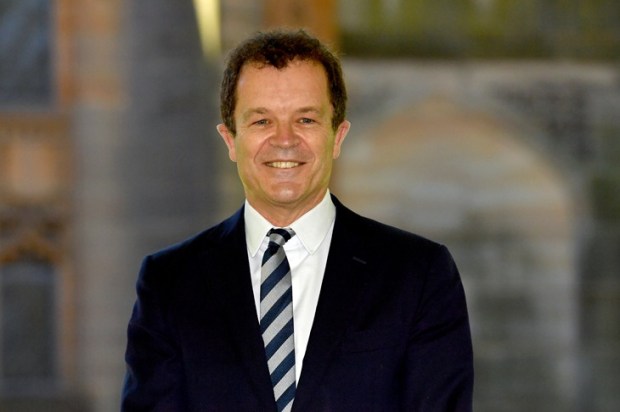A recent newspaper article asked university students how they would solve the current housing crisis. The article suggested that we were heading towards a housing ‘catastrophe’, but Gen Z had the answer. However, an economist mate of mine pointed to the HILDA data and suggested people found it harder to pay their rent or their mortgage in the early 2000s than today. Never let a good political ‘narrative’ get in the way of social engineering. It’s hard, but hardly a catastrophe.
What struck me most was that all the young people interviewed expected government to provide their housing needs through direct action (with no mention of record immigration under Labor). They wanted the government to do what was done for returning servicemen following the second world war. The ideology shone through when one student claimed:
‘Living in an apartment shouldn’t be viewed as the worst-case scenario. It should be that Australians are actually looking forward to living in an apartment.’
There are three issues that are concerning about the views of this particular class of young people. (Note: I am not suggesting all young people suffer from the Woke mind virus.)
First, Gen Z wouldn’t exist if it were not for the servicemen and women who gave their all to defend Australia from an external aggressor. Doing for them what Australia did for the returning troops is nonsense. We don’t owe Gen Z anything. To the returning troops, we owe everything.
Second, the students referred to the post-war glory days of housing. Not a single mention of Sir Robert Menzies. Australia’s home ownership dream peaked at the end of Menzies’ tenure. But his vision of home ownership is being replaced by inner-city madness where poor kids cross-subsidise inner-city housing and transport hubs for rich kids. In the meantime, the poor kids drive older cars to get to work from faraway suburbs where they try to eke out a living.
Menzies created the conditions for individual home ownership. He wasn’t focused on funding communist-style three-storey walk-up guvvie housing for the luvvies.
Third, when somebody starts telling me I should be looking forward to living in an apartment, it is not a worst-case scenario, it is a ghastly nightmare. Anyone suggesting that the Australian dream is to live in an apartment is headed for Dante’s ninth circle of treachery. Judas and Brutus are waiting there as betrayers of special relationships. Those who advocate apartments are betraying the Australian dream and they deserve to be in the centre of the frozen lake with those other traitors.
Dante’s vision of hell brings me to my point about governments with a vision for the people.
In a liberal democracy, private property rights should be protected by the state. Of course, laws are created to ensure the use of private property does not affect the common good, but living in your own house, even with a mortgage, is to me the ultimate freedom.
However, owning your own home is not easy. I have had two mortgaged houses, and home ownership is something I prioritise over almost everything else. I want pets and a garden and to renovate as I see fit and to create spaces for my work and for art. Almost all of the things I like to do with my house are not allowed in rental properties.
(Mind you, I wouldn’t be a landlord for quids these days since state governments have taken away most landlords’ property rights. In a socialist overreach, Victoria even taxes you if you choose not to rent out your investment property!)
I recall my first mortgage when my kids were young, and I did the budget for the rest of the year, and we were thousands of dollars short with no way to make up the difference. Somehow, we survived. It took sacrifice, it was stressful, but we got through. It’s not that much different for homeowners today.
All I expected of government was to create the economic conditions that made my mortgage payments affordable. Instead, the housing commission bought the five-bedroom house next door that was worth several times the value of my house. Thankfully, the newly elected Howard government created conditions that led to reduced interest rates and my new neighbours became friends. But owning my own house back then or even now is hardly the cakewalk some young people are making it out to be for earlier generations.
In a liberal democracy, a government’s vision should be to provide the economic and social conditions that allow individuals to flourish. Equality of opportunity ensures those with real disadvantages are not left behind, but it requires more lifters than leaners.
Anything else is social engineering. In political science, social engineering is an attempt to modify individual beliefs and behaviours on a mass scale. It might equally be called scientific propaganda.
Economically, incentivising certain behaviours can provide benefits and reduce undesirable externalities. But when social engineering moves from the mundane like educating people not to litter (Do the Right Thing) to clamping down on freedom of speech and reducing property rights, social engineering is simply Orwellian.
In the words of Edward Bernays, the original ‘father of spin’:
‘…if the mass social engineer is successful… “the ideas conveyed by the words will become part and parcel of the people themselves.”’
I am all for educational campaigns like Keep Australia Beautiful. One only has to travel to the developing world to see how education about littering makes an enormous difference. But putting spin on using taxpayer funds to purchase housing we then must rent off the government isn’t solving a crisis; it is creating a crisis of liberty.
To be sure, some people may need to live in a taxpayer-funded house and live on a taxpayer-funded social security payment. After all, freedom to die in the gutter is no freedom at all. But it should not be seen as something we aspire to.
Until recently, Australia has had a good balance of equality of opportunity in social services. The global shift toward government providing all of society’s solutions, however, is a result of social engineering gone mad.
Interest rates are a key driver of housing affordability. Yet our government is hell-bent on socially engineering political opinions dressed up as education while spending taxpayers’ money to buy votes. Such agendas are creating a class of voters who are not dependent on government for their daily bread. Rather, this class is dependent on the government for their aspirations. This includes where and how we desire to live.
Adam Smith suggested that the free market enabled individuals to pursue what they envisioned as their own self-interest, which in turn improved productivity and benefited everyone. The economic system advocated by Smith created the greatest living conditions in human history.
Karl Marx suggested that individuals should bow to the collective and individual talents should be used to prop up leaners. The economic system advocated by Marx resulted in the greatest living conditions in human misery. That’s the real catastrophe.
So, beware the government with a vision for the people. If the government’s vision leaves no room for yours, then make sure you send their treacherous souls to the middle of the frozen lake in Dante’s ninth circle at the next election.
Dr Michael de Percy @FlaneurPolitiq is a political scientist and political commentator. He is a Fellow of the Royal Society of Arts, a Chartered Fellow of the Chartered Institute of Logistics and Transport (CILTA), and a Member of the Royal Society of NSW. He is Editor-in-Chief of the Journal of Telecommunications and the Digital Economy, Chairman of the ACT and Southern NSW Chapter of CILTA, and a member of the Australian Nuclear Association. Michael is a graduate of the Royal Military College, Duntroon and was appointed to the College of Experts at the Australian Research Council in 2022. All opinions in this article are the author’s own and are not intended to reflect the views of any other person or organisation.


























